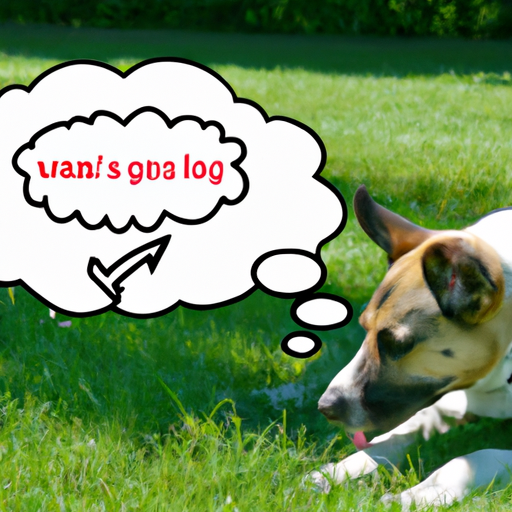As a dog caregiver, you may frequently find yourself asking, “Why does my furry friend eat grass and then throw up?” This behavior, which seems strange to us humans, is actually fairly common among dogs.
H2: Understanding Your Dog’s Eating Habits
First, let’s put your mind at ease: the act of a dog eating grass and vomiting afterward, known as pica, is typically harmless. Dogs are natural scavengers, and their ancestors were opportunistic eaters. So, your pet may simply be exploring their environment or following an ancestral instinct.
However, some scientists and veterinarians suggest that dogs may eat grass to induce vomiting if they’re feeling unwell. This is because grass can be hard for a dog’s digestive system to process, leading to irritation and often, vomiting.
H2: Reasons Why Dogs Eat Grass and Vomit
There are several theories that try to explain why dogs eat grass and then vomit.
-
Nutritional Needs: Some experts believe that dogs eat grass when they’re lacking certain nutrients in their diet, like fiber.
-
Boredom: Dogs may eat grass out of boredom, especially if they’re left alone in a yard for long periods.
-
Stomach Upset: Dogs might instinctively eat grass to induce vomiting when they’re feeling sick.
-
Behavioral Reasons: Some dogs may eat grass simply because they like the taste or texture, or because they see other dogs doing it.
H2: When Grass Eating Becomes a Problem
Although grass eating is usually harmless, it can sometimes signify a larger issue. If your dog is eating grass frantically, or if they’re vomiting frequently and showing other signs of illness (like loss of appetite or lethargy), it’s time to consult a vet.
Dogs can also pick up pesticides, herbicides, and other harmful substances from grass, especially if they’re grazing in public parks or other areas where these chemicals may be used.
H2: What to Do if Your Dog is Eating Grass and Vomiting
If your dog is eating grass and vomiting frequently, here’s what you can do:
- Monitor their behavior: Keep an eye on how often your dog eats grass and vomits. Also, note any changes in their behavior, eating habits, or bowel movements.
- Adjust their diet: If your dog’s diet is lacking in fiber, adding some steamed vegetables or a fiber supplement might help.
- Provide enrichment: If boredom is the problem, providing more toys, exercise, and mental stimulation can help.
- Consult a vet: If your dog is frequently vomiting or showing other signs of illness, it’s important to consult a vet.
H2: Frequently Asked Questions (FAQ)
Q: Is it normal for dogs to eat grass and vomit?
Yes, it’s fairly common and usually not a cause for concern. However, frequent vomiting or other signs of illness should be checked by a vet.
Q: Can eating grass hurt my dog?
Typically, eating grass is not harmful. However, if the grass has been treated with chemicals like pesticides or herbicides, it could potentially harm your dog.
Q: Should I stop my dog from eating grass?
If your dog enjoys eating grass and isn’t vomiting frequently or showing other signs of illness, there’s usually no need to stop them.
Q: What if my dog is eating grass and vomiting frequently?
Frequent vomiting, with or without grass eating, can be a sign of a medical problem and should be checked by a vet.
Q: Can I change my dog’s diet to stop them from eating grass?
If your dog’s diet lacks fiber, adding more to their diet might help. However, it’s best to consult your vet before making any major changes to your dog’s diet.
In conclusion, while the sight of your dog eating grass and then throwing up may be unsettling, it’s usually nothing to worry about. However, if this behavior is accompanied by other signs of illness or distress, it’s always best to consult with your vet to rule out any potential health issues.



